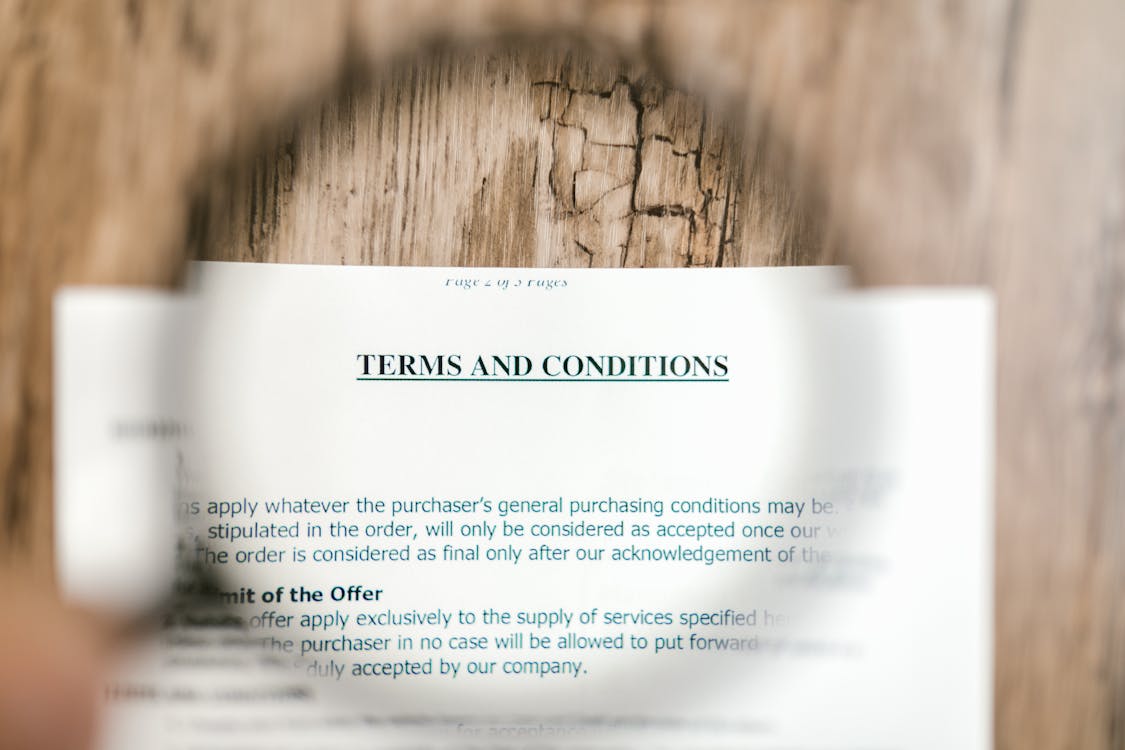How to Choose a Shopify Marketing Agency That Delivers Real Results
Your Shopify store is your passion. You’ve poured countless hours into sourcing incredible products, designing a beautiful website, and building a brand you believe in. But there’s a frustrating problem: the traffic is a trickle, and the sales aren’t matching your ambition. You know you need to market your store, but the world of SEO, PPC, and email funnels is complex, time-consuming, and constantly changing.
Trying to do it all yourself is a recipe for burnout and painfully slow growth.
If this sounds familiar, you’re in the right place. Hiring a specialized agency can be the single most impactful decision you make for your e-commerce business. This guide provides a step-by-step framework for finding, vetting, and choosing a Shopify marketing agency that acts as a true growth partner and delivers a measurable return on investment (ROI).
Do You Need a Shopify Marketing Agency? Signs It’s Time to Hire Help
Before diving into the "how," let's confirm the "why." Recognizing you need help is the first step toward explosive growth. If any of these points resonate with you, it’s time to seriously consider bringing in a professional team.

Your Growth Has Plateaued
You saw some initial success, perhaps through friends, family, or a lucky break on social media. But now, you’ve hit a ceiling. Your monthly revenue has been stuck around the same figure for months, and the strategies that got you here are no longer pushing you forward. An agency brings fresh perspectives and advanced strategies to break through that plateau.
You Lack In-House Marketing Expertise
Being a great entrepreneur or product visionary is not the same as being a specialist in Google Ads, technical SEO, or Klaviyo email automation. A dedicated Shopify agency lives and breathes e-commerce marketing. They have teams of specialists who understand the nuances of each channel, saving you the steep and expensive learning curve.
You Don't Have Time to Focus on Marketing
Let's be honest: effective marketing is a full-time job. Between optimizing ad campaigns, writing blog content, analyzing data, and managing social media, there are simply not enough hours in the day. By outsourcing marketing, you free yourself up to focus on core business functions you excel at, like product innovation, customer service, and strategic planning.
Your Current Marketing Efforts Aren't Yielding ROI
Are you spending money on Facebook or Google ads with little to show for it? "Boosting" posts and hoping for the best is a surefire way to burn through your budget. A professional agency replaces guesswork with a data-driven, strategic approach, ensuring your marketing dollars are invested, not just spent.
The Core Services: What a Full-Service Shopify Agency Offers
Understanding what a top-tier agency can do is key to identifying your own needs. A true Shopify marketing agency offers a suite of integrated services designed to attract, convert, and retain customers.

Shopify SEO (Search Engine Optimization)
This is the foundation for long-term, organic growth. It’s about making your store visible to people actively searching on Google for products like yours.
- Technical SEO: Ensuring your site is fast, mobile-friendly, and easy for Google to crawl. This includes optimizing site structure, improving Core Web Vitals, and fixing technical errors.
- On-Page SEO: Optimizing product pages, collection pages, and blog posts with the right keywords to rank for valuable search terms.
- Content & Link Building: Creating valuable blog posts, buying guides, and articles that attract your target audience and earning backlinks to establish your brand as an authority.
Paid Advertising (PPC & Paid Social)
Paid ads are the fastest way to drive targeted, ready-to-buy traffic to your Shopify store.
- Google Ads: This includes Search ads, Google Shopping campaigns, and powerful Performance Max campaigns that reach customers across all of Google's channels.
- Social Media Ads: Highly targeted campaigns on platforms like Facebook, Instagram, and TikTok to reach users based on their interests, demographics, and online behavior.
Email & SMS Marketing Automation
This is where you maximize your profit. It's far cheaper to retain an existing customer than to acquire a new one. This service focuses on increasing customer lifetime value (CLV).
- Key Platforms: Deep expertise in e-commerce-focused platforms like Klaviyo or Omnisend.
- Automated Flows: Setting up crucial automations like abandoned cart reminders, welcome series for new subscribers, post-purchase follow-ups, and win-back campaigns for lapsed customers.
Conversion Rate Optimization (CRO)
What’s the point of driving traffic if those visitors don't buy? CRO is the science and art of turning more of your website visitors into customers.
- A/B Testing: Methodically testing different headlines, product images, button colors, and page layouts to identify what converts best.
- User Experience (UX) Analysis: Analyzing user behavior with tools like heatmaps to identify and fix friction points in the shopping journey, from the homepage to the final checkout step.
- Landing Page Optimization: Creating dedicated, high-converting pages specifically for your ad campaigns to maximize ROI.
Your 5-Step Framework for Evaluating a Shopify Marketing Agency
Now for the actionable part. Follow this framework to move from searching to signing with confidence.

Step 1: Define Your Business Goals and KPIs
Before you even start your search, you must know what success looks like for you. Don't just say, "I want more sales." Get specific by setting SMART goals (Specific, Measurable, Achievable, Relevant, Time-bound).
- Vague Goal: "I want to grow my business."
- SMART Goal: "I want to increase total online revenue by 40% over the next 12 months by increasing organic traffic by 50% and achieving a 4x Return on Ad Spend (ROAS) from our paid social campaigns."
Step 2: Verify Their Shopify-Specific Expertise
This is non-negotiable. A general marketing agency that works with local dentists and B2B software companies will not understand the unique challenges and opportunities of the Shopify platform. A true Shopify expert will:
- Be an official Shopify Partner or have a deep, demonstrable portfolio of Shopify clients.
- Have hands-on experience with essential Shopify apps for subscriptions (e.g., ReCharge), reviews (e.g., Loox, Yotpo), and page building (e.g., Shogun).
- Understand how to work with (or around) the limitations of different Shopify themes and the platform's architecture.
Step 3: Scrutinize Their Case Studies and Testimonials
Don't be swayed by a slick sales pitch. The proof is in their past performance. When reviewing their portfolio, look for:
- Relevance: Do they have case studies from stores in your industry, with a similar average order value, or facing similar challenges?
- Concrete Numbers: Vague statements like "we increased their traffic" are a red flag. Look for specific metrics: "We grew their organic revenue by 150% in 9 months," or "We improved their Google Ads ROAS from 2.5x to 4.8x."
- Verifiable Proof: Look for video testimonials or reviews on trusted third-party sites like Clutch or Google Reviews.
Step 4: Understand Their Process, Reporting, and Communication
How an agency works is just as important as the work they do. Transparency is critical for a healthy partnership.
- Process: What does their onboarding look like? How do they develop a strategy tailored to your business?
- Reporting: How often will you receive reports (weekly, bi-weekly, monthly)? A great agency will provide a live dashboard (e.g., in Looker Studio) so you can check performance anytime.
- Communication: Who will be your dedicated point of contact? How often will you have strategy calls? A clear communication rhythm prevents misunderstandings and ensures everyone is aligned.
Step 5: Analyze Their Pricing and Contract Structure
Finally, you need to understand the investment. Common pricing models include:
- Monthly Retainer: A fixed fee per month for an agreed-upon scope of work. This is the most common and predictable model.
- Project-Based Fees: A one-time fee for a specific project, like an SEO audit or setting up email flows.
- Performance-Based: A model where the agency's fee is tied to results, often as a percentage of revenue or ad spend.
Pay close attention to the contract length and, most importantly, the cancellation clause. A confident agency won't need to lock you into an iron-clad 12-month contract. Look for a 30- or 60-day out clause, which shows they believe in their ability to deliver value.
The Vetting Process: Key Questions to Ask and Red Flags to Avoid
You’ve shortlisted a few agencies. Now it’s time for the discovery calls. Use these questions and red flags to separate the true partners from the pretenders.

Top 10 Questions to Ask a Potential Agency
- Can you show me a case study from a Shopify store in a similar niche or with similar challenges to ours?
- What does your typical onboarding process look like for a new client in the first 30 days?
- Based on our goals, which specific KPIs will you focus on to measure success?
- Who will be my day-to-day contact, and what is their direct experience with Shopify stores?
- How does your team stay updated on changes to Google's algorithm and social media ad platforms?
- What would be your high-level strategic approach for our store in the first 90 days?
- How much involvement and time will you need from me and my team each month?
- What does your reporting look like? Can I see a sample report or dashboard?
- What is your process for pivoting strategy if a campaign is underperforming?
- What are the terms of your contract regarding length, cancellation, and ownership of ad accounts?
Critical Red Flags That Signal a Bad Fit
If you encounter any of these, proceed with extreme caution or simply walk away.
- Guarantees of #1 Rankings or Specific Results: This is the biggest red flag. No honest marketer can guarantee a #1 ranking on Google or a specific ROAS. There are too many variables outside their control.
- "Secret Sauce" or Lack of Transparency: A great agency is a partner that educates you. If they are cagey about their methods or use vague terms like "our proprietary formula," they are likely hiding a lack of substance.
- Poor Communication During the Sales Process: If they are slow to respond, miss meetings, or send sloppy emails now, imagine what it will be like once you're a paying client.
- One-Size-Fits-All Packages: Your business is unique. Your marketing strategy should be too. Avoid agencies that push a generic "Gold Package" without first doing a deep dive into your specific goals and challenges.
- They Insist on Owning Your Accounts: You should always have full ownership and administrative access to your Google Ads, Google Analytics, social media pages, and Klaviyo accounts. An agency should only be granted access, not ownership. This is non-negotiable.
Preparing for a Successful Partnership: Onboarding and Beyond
Congratulations, you’ve made your choice! The work isn’t over; it’s just beginning. Here’s how to set your new partnership up for success from day one.
What to Expect in the First 30-90 Days
Real results take time, especially with SEO. The initial period is about building a solid foundation.
- Month 1: Deep-dive audits (technical SEO, ad account history, etc.), competitor analysis, account access setup, and collaborative strategy development.
- Months 2-3: Implementation of the initial strategy, launching the first campaigns, and beginning the crucial process of testing, learning, and optimizing based on real-world data.
Your Role as the Client: How to Be a Great Partner
This is a two-way street. To get the most out of your agency, you need to be an engaged and effective client.
- Provide Timely Feedback: When they send something for approval, respond promptly to keep momentum going.
- Share Business Insights: Let them know about upcoming promotions, new product launches, or inventory issues. This context is invaluable for their strategy.
- Trust the Process: You hired them for their expertise. Be open to their recommendations, ask questions, and trust the strategy you built together.
Making a Strategic Investment in Your Store's Future
Choosing the right Shopify marketing agency is one of the most critical decisions you'll make as an e-commerce entrepreneur. It can be the catalyst that takes your store from a struggling side hustle to a scalable, profitable brand.
By following this guide, you can cut through the noise and make an informed decision. Remember the key steps: define your goals, demand Shopify-specific proof, understand their process, ask the tough questions, and watch out for the red flags.
Ultimately, hiring the right agency isn't an expense. It's a strategic investment in your store's future—an investment in expertise, in time, and in sustainable, long-term growth.
